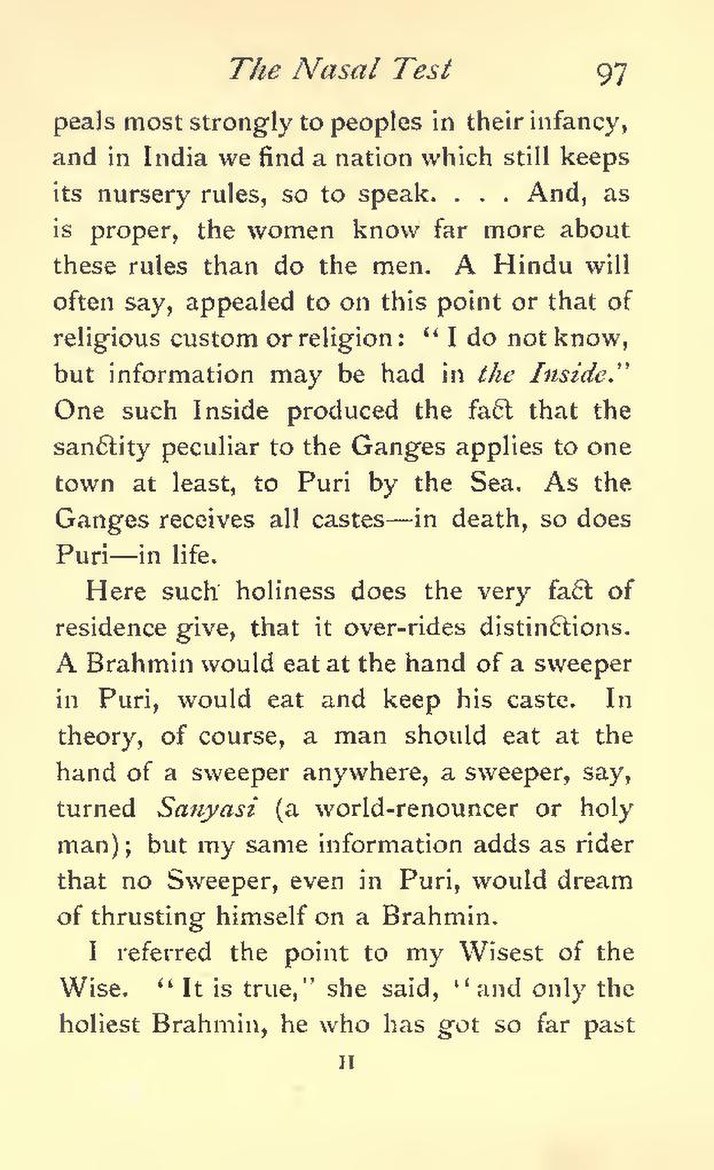peals most strongly to peoples in their infancy, and in India we find a nation which still keeps its nursery rules, so to speak. … And, as is proper, the women know far more about these rules than do the men. A Hindu will often say, appealed to on this point or that of religious custom or religion: “I do not know, but information may be had in the Inside.” One such Inside produced the fact that the sanctity peculiar to the Ganges applies to one town at least, to Puri by the Sea. As the Ganges receives all castes—in death, so does Puri—in life.
Here such holiness does the very fact of residence give, that it over-rides distinctions. A Brahmin would eat at the hand of a sweeper in Puri, would eat and keep his caste. In theory, of course, a man should eat at the hand of a sweeper anywhere, a sweeper, say, turned Sanyasi (a world-renouncer or holy man); but my same information adds as rider that no Sweeper, even in Puri, would dream of thrusting himself on a Brahmin.
I referred the point to my Wisest of the Wise. “It is true,” she said, “and only the holiest Brahmin, he who has got so far past
